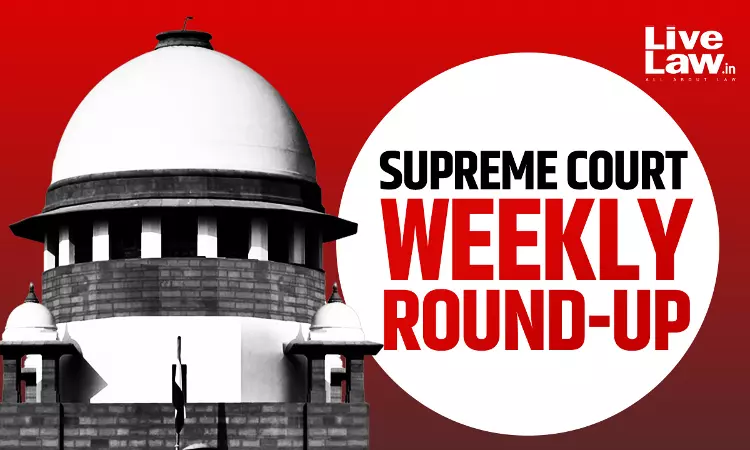Supreme Court Weekly Round-up: September 1, 2024 To September 8, 2024
Amisha Shrivastava
8 Sept 2024 8:04 PM IST

Next Story
8 Sept 2024 8:04 PM IST
IndexCitations (2024 LiveLaw (SC) 636 - 2024 LiveLaw (SC) 673) Salam Samarjeet Singh v. High Court of Manipur at Imphal 2024 LiveLaw (SC) 636Rama Kt. Barman (Died) Thr. Lrs. v. Md. Mahim Ali & Ors. 2024 LiveLaw (SC) 637Union Of India v. Bahareh Bakshi 2024 LiveLaw (SC) 638 K. Arumugam v. Union Of India & Others Etc. 2024 LiveLaw (SC) 639State of Kerala v. Prabhu 2024 LiveLaw...
